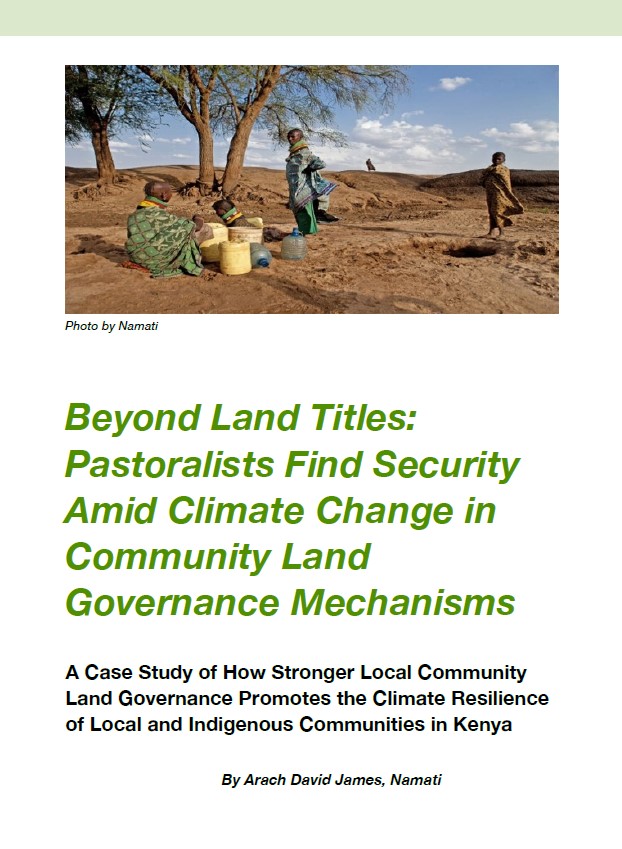Resource information
This case study presents the unique example of pastoralist communities in Kenya who had traditionally been able to rely on their customary land governance systems to ensure their access to grazing land and to help them sustain their livelihoods in the face of drought. However, land laws that were passed by the colonial and post-colonial administrations in Kenya progressively replaced customary structures and practices with artificial formal/legal structures that bore no connection to the communities’ customs. Apart from weakening customary structures, these laws also created opportunities for powerful individuals to privatize communal land. As a result, pastoralist communities now require legal recognition of their customary tenure. With insecure land tenure and their inability to govern their lands, local communities cannot effectively benefit from their rich traditional knowledge on climate resilience. Furthermore, without legal registration, communities will continue to lose their lands to large-scale land acquisition and bad deals. The government’s wholesale endorsement of carbon trading as a climate adaptation strategy raises questions regarding the potential of such projects to build the communities’ climate resilience. Communities have not been able to participate in related discussions because of their insufficient understanding of how carbon trading works. Moreover, elite groups within and outside the communities have monopolized the development and implementation of carbon trading projects in Kenya.

